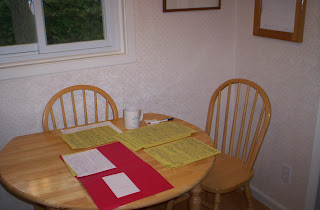 A view of my nook in the Colborne Public Library where I was a Human Book this past weekend.
A view of my nook in the Colborne Public Library where I was a Human Book this past weekend.
Call it a Human Book or a Human Library, these programs are popping up in libraries across the country. The event I was participating in was hosted by the Colborne Public Library and the Spirit of the Hills Art Association to celebrate "October is Arts Month" in Northumberland County and Canadian Public Library Month.
In most cases a Human Library presents the public with the opportunity to consult, for one half hour, people who are of different ethnic backgrounds, who work at unusual occupations, who live on the edge of society, or who are simply interesting people with a life story to tell.
At the event last weekend, we were all engaged in creative work. There was a children's book illustrator, a sculptor, an artist, a man who specialized in Chinese calligraphy, a photographer, and a writer. We each had a corner of the library where we could set up the tools of our trade and where visitors could come and ask us questions.
So what did the patrons who consulted me ask? Which of the books in my display was my first? How do I submit a manuscript? What drew me to write Ivy's story (Growing Up Ivy)? Do I have any input when it comes to the cover art? What can you tell me about the importance of editing? And it was inevitable: what do you think about e-books?
This event was a first for Colborne library. I've since heard that all the participants enjoyed the experience. There are a few kinks to be ironed out, but everyone is willing to take part next year.
Write on!





